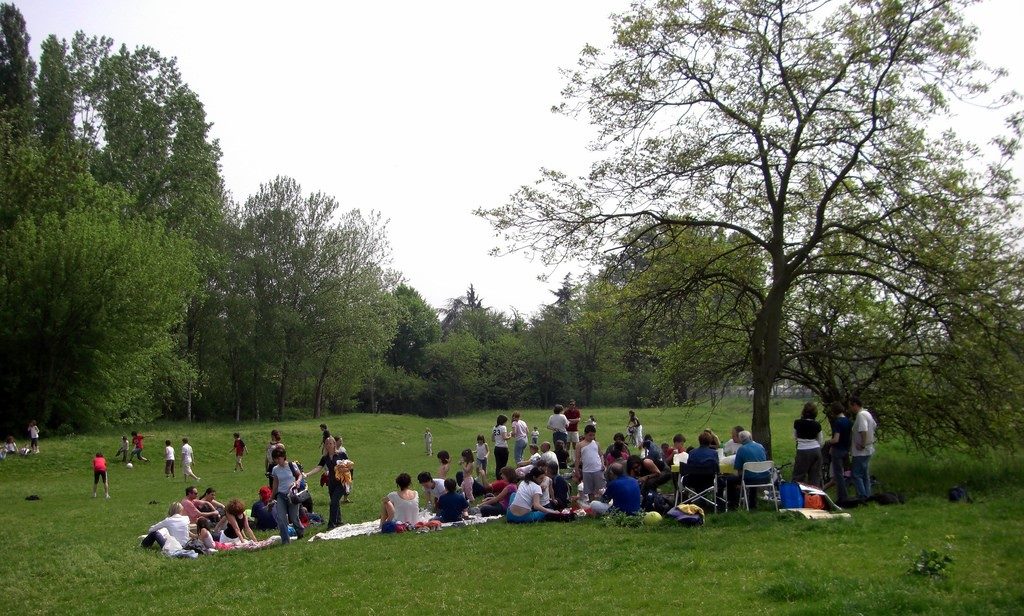
Jesus must have loved picnics. The Gospels recount two humongous picnics hosted by Rabbi Jesus.
The Gospels call them feedings instead of picnics, but that’s just semantics. Both picnics and feedings happen outside on the ground despite challenging weather and insects.
Mark’s descriptions of the two picnics are long winded (6:30–44 and 8:1–10). The accounts in Matthew 14:13–21 and 15:32–39) and Luke 9:10–17 cut out a few details while John 6:1–14 inserts details not mentioned in the other Gospels.
Because the details of the two feedings are so similar, I think either the four Gospels are talking about the same picnic or the picnic organizers used the same plan.
Jesus supposedly fed five thousand people by the Sea of Galilee and four thousand people in an isolated place. Matthew’s accounts of both feedings sneak in the words “besides women and children,” which logically means between twelve thousand and twenty thousand folks attended these picnics.
I’ve been to Israel twice, and the second time, I spent a couple of weeks in Galilee, a small farming region with a big lake and Jesus’s old stomping grounds. The idea of holding a picnic for five thousand folks there is a stretch. Twenty thousand is a gross exaggeration.
All four Gospels talk about the picnic by the Sea of Galilee, where Jesus fed five thousand people with five loaves of bread and two fish. Afterward, Jesus’s followers collected twelve baskets of leftovers, which were possibly symbolic of the twelve tribes of Israel or the twelve disciples.
Only Mark and Matthew talk about another picnic with just four thousand attendees. That is still a huge number, especially considering this feeding took place in an isolated place. At this picnic, Jesus fed the whole crowd with only seven (another special number) loaves of bread and a few small fish. The food must have been delicious because the disciples only collected seven baskets of leftovers afterward.
Enough pretending that either of these picnics ever happened. They are made-up stories, but they contain great hidden truths.
Let’s do some midrash, or biblical interpretation. The picnic stories remind me of the Exodus tale of gathering manna after the Israelites escaped from Egypt—a symbolic feeding (16:1–26).
The picnic stories also remind me of Holy Communion or the Eucharist, where we take food, bless it, and share it, not as a meal but as a special feeding.
My interpretation is that gathering what we have and sharing it is what we are supposed to do as Followers. The food in the picnic stories represents agape. As believers, we gather weekly to remind ourselves of our mission in life—to show unconditional love to everyone, no matter where they are on their life’s journey. It is so easy to fall off the agape wagon and forget to forgive or accept everyone or care for the less fortunate.
We need to always get back on the wagon and show agape to others. Then we’ll have baskets of agape left over to give away.
I love midrash because no one’s interpretation is ever wrong (though some may be a little misguided). We are all in a different place on our life’s journey, and we interpret each biblical story from that place, which changes over our life span—or so I hope.
What do all these picnics mean to you?
Image courtesy of David Orban (CC BY 2.0)